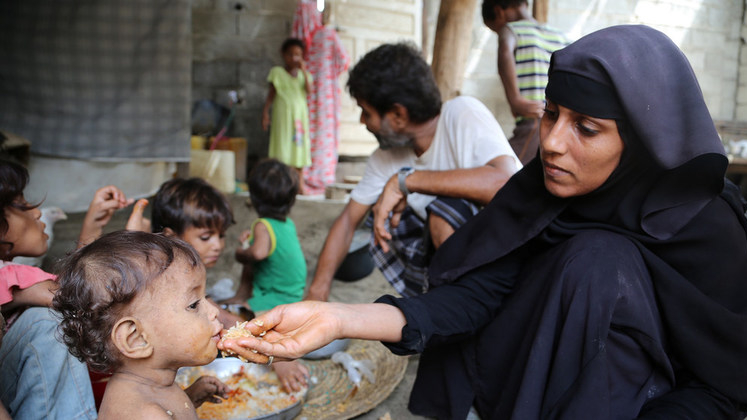As many as 22 human rights groups and international charities have issued an urgent appeal to the new US administration of president Joe Biden to reverse the Trump administration’s decision to designate Yemeni group Ansarallah (popularly known as Houthis) as a terrorist organization. The groups warned that the decision could have serious negative consequences, such as affecting the import and supply of humanitarian goods, medicines, fuel, and other essential items to Houthi-controlled areas in Yemen. It could also jeopardize the fledgling and slow-moving peace negotiations to end the civil war and conflict in the country ongoing for the last six years, the organizations said.
In a statement released to the media, the groups said, “This designation comes at a time when famine is a very real threat to a country devastated by six years of conflict, and it must be revoked immediately. Any disruption to lifesaving aid operations and commercial imports of food, fuel, medicine and other essential goods will put millions of lives at risk.”
Organizations that have signed the statement include international charities such as Oxfam, International Rescue Committee, Save the Children, Norwegian Refugee Council, Islamic Relief, International Medical Corps, Danish Refugee Council, HALO Trust, Direct Aid, and Mercy Corps, among others.
The US designation of Houthis as terrorists exempts a few aid groups, like the United Nations and the Red Cross, who can continue to supply them with agricultural items, medicines and medical equipment. However, “the licenses and associated guidance do not provide sufficient guarantees to international banks, shipping companies and suppliers that still face the risk of falling foul of US laws. As a result, many in the commercial sector will likely feel the risk is too high to continue working in Yemen,” the statement said.
As per the statement, among the reasons for making this strong humanitarian appeal are the already famine-like conditions in the country, with over 16 million Yemenis on the brink of starvation. As per the groups, the US’ designation will further worsen this situation. Several international and local businesses may be forced to shut down due to lack of supply, as well as the international legal consequences they may face. The shipping and banking sectors are also likely to face significant disruptions, causing further delays for those organizations and businesses which are allowed to operate in Houthi-held areas. Another cause of concern is the expected steep rise in the prices of most commodities, including food items, medicines and other basic goods.
The incoming Biden administration initiated a review of the designation on January 19 – two days before the president took office. Multiple officials in the new administration, including national security advisor Jake Sullivan and secretary of state Antony Blinken, have signaled their intent to immediately review the designation and work towards ending US’ military and logistical support to the Saudi-led Gulf coalition’s military intervention in Yemen dating back to March 2015. Blinken, in his Senate confirmation hearing, described the situation in Yemen as “the worst humanitarian situation anywhere in the world.”
More than 200,000 Yemenis have been killed in the ongoing civil war and as a result of the Saudi coalition’s military operations, launched on behalf of the Yemeni government of Abdrabbuh Mansur Hadi against the Houthis. The coalition forces have carried out repeated airstrikes and bombing campaigns, including in many civilian areas, causing the deaths of thousands of unarmed Yemenis. The previous Trump administration supported the coalition’s military intervention, selling its member countries billions of dollars worth of arms, precision bombs, fighter jets, drones and missiles. It also supplied them with important military logistical support.





